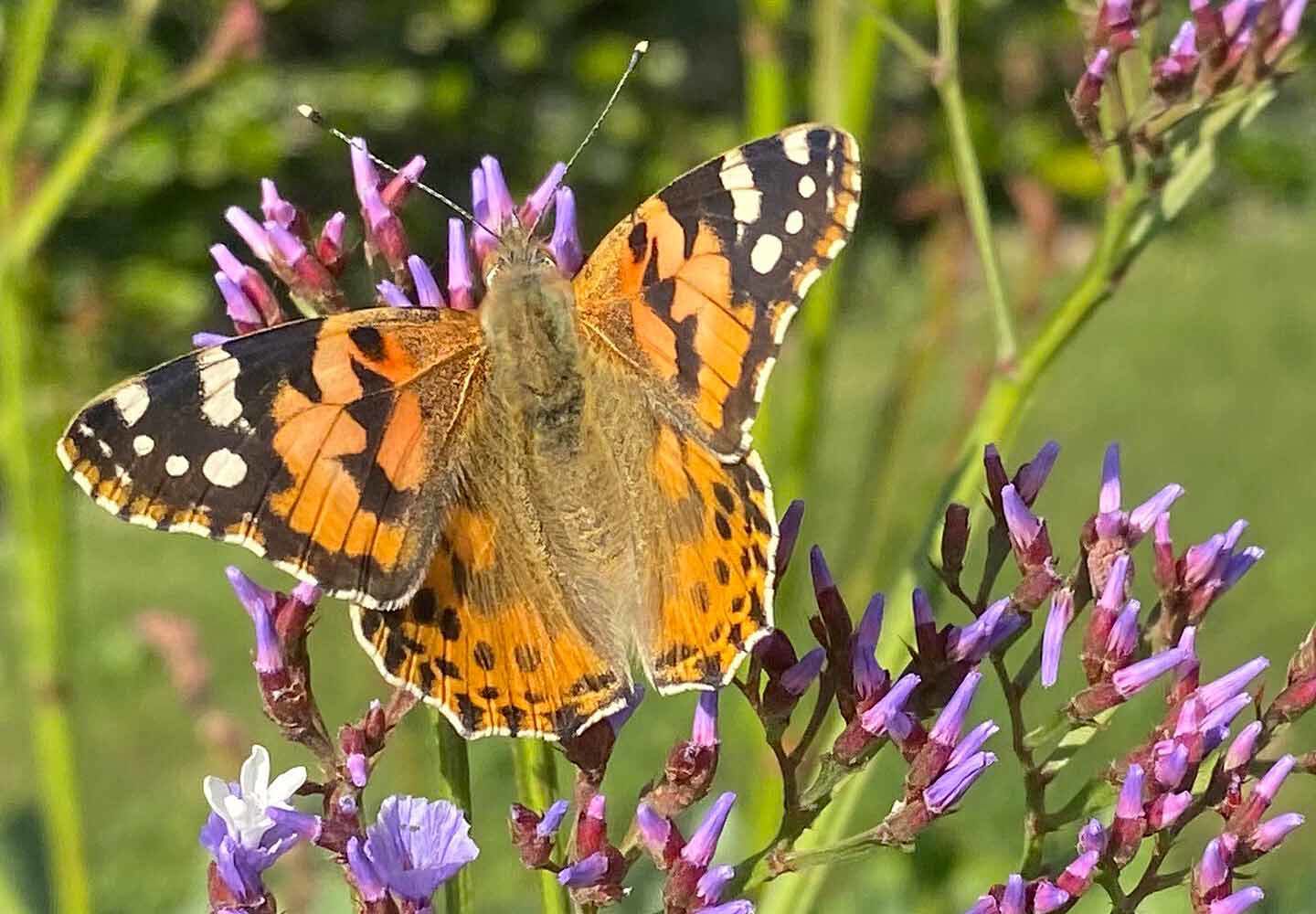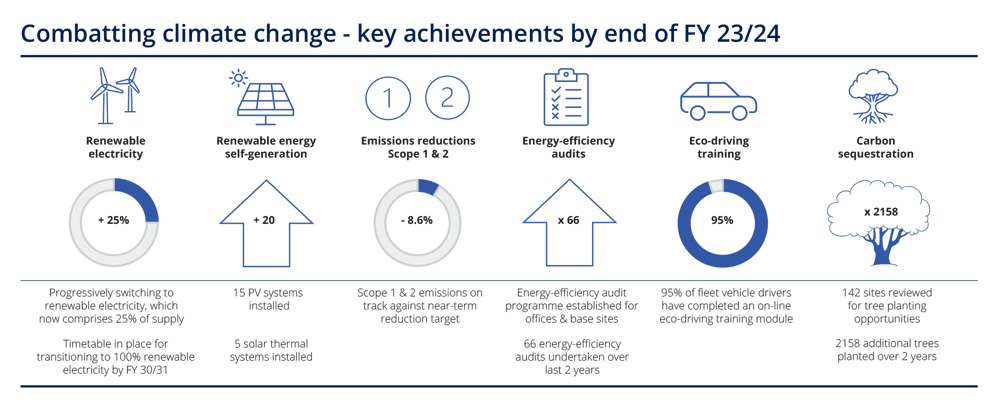
Sustainability
The key environmental concerns of our time are climate change and the widespread loss of biodiversity. Both of these global environmental challenges are the result of over-consumption of natural resources, the waste generated and its release into the environment.
To reflect these concerns, our key sustainability drivers encompass the following three principal themes -
Combating climate change
Protecting biodiversity
Promoting a circular economy
Combatting climate change

The Commonwealth War Graves Commission has undertaken a wide range of initiatives as part of the commitment to combatting climate change, including:
- Progressively switching to renewable electricity sources, which now account for 25% of our total electricity supply
- Installing 15 photovoltaic solar panel systems and 5 solar thermal panels to support in-house renewable energy generation
- Conducting 66 audits as part of our energy-efficiency audit programme over the past two years
- Providing eco-driving training to 95% of our fleet vehicle drivers
- Reviewing 142 sites worldwide to identify tree planting opportunities
- Planting 2,158 additional trees over the past two years, enhancing the carbon sequestration and biodiversity potential of our estate
For the scope 3 emissions quantified to date, emissions unfortunately increased by 0.4% rather than decreased, due to increased business travel. There is clearly work to be done in this area to align practice with our ambitions.
As part of our on-going efforts to decarbonise our operations, we will:
- Continue to consider options for transitioning to renewable electricity supplies when energy contracts come up for renewal
- Expand the number of electric vehicles in our fleet
- Continue to audit base sites and offices to identify potential energy-efficiency opportunities
Protecting biodiversity

By early 2024, we had improved the range of habitats available for wildlife by:
- Allowing the grass to grow longer in carefully selected zones at 59 sites
- Introducing wildflower zones and bulb/nectar-rich lawns at 109 sites, amounting to 81,251m2 of biodiversity enhancement
- Installing 314 bird boxes and 68 bat boxes
- Introducing 98 bee and insect hotels of varying designs, many crafted or assembled in-house, to provide suitable egg-laying environments for important pollinators
- Introducing 83 deadwood features in the form of piles, hedges and log pyramids, providing additional places for wildlife to rest, nest and feed
Importantly, we continue to progressively reduce our usage of herbicides, pesticides and biocides, and have achieved an amazing 94% reduction by volume in the use of these chemicals against our 2019 baseline.
As a replacement to biocides, we have introduced an enzyme-based, headstone cleaning product. This product is now in use at all locations where we previously used biocides (predominantly northern Europe). It is also in use in northern Italy, Malta and Singapore. We no longer order biocides for stone cleaning and are depleting any remaining stocks of such chemicals.
Promoting a circular economy

The Commission is striving to promote a circular economy approach, whereby resources are used efficiently, and are reused or recycled where possible to reduce overall resource consumption. This approach also reduces the quantities of waste generated, equating to more sustainable ways of working.
Over the last 2 years, we have heightened our focus on water consumption, by:
- Improving water metering and the collection of water consumption data across our sites worldwide
- Rolling out a smart, software system that enables us to better optimise and track the water consumed by our irrigation systems
- Developing water-efficiency targets tailored to each irrigation system
- Introducing a water-efficiency audit programme for our buildings
- Promoting the capture and re-use of rainwater
These advances have contributed to the 12.6% reduction in water consumption achieved over the last financial year.
In terms of efforts taken to reduce waste generation, we have:
- Improved the arrangements for waste segregation at our offices to promote further recycling
- Improved on-site composting capabilities at a number of sites
- Heightened awareness of the need to consider how waste from structural and horticultural projects can be reduced, re-used and recycled
Here are some specific examples from the range of measures being undertaken to promote a circular economy:
- Rainwater harvesting systems have been installed at Yokohama War Cemetery, Japan, and Brookwood Military Cemetery, UK. At Yokohama, our workers have been using the collected rainwater to clean tools, whilst at Brookwood the harvested rainwater will be used to support both the plants in our small nursery and the establishment of plants and trees around the site.
- In Malta, water filters have been installed on taps to improve the drinkability of the water, helping to reduce both the quantity of bottled water that needs to be purchased and the generation of single-use plastic waste.
- Within the UK, we are trialling an innovative mobile composting unit developed by a member of our UK team. Rather than having to transport green waste off-site, these units will enable us to compost our green waste in situ at certain locations where our plots are located within larger cemeteries and churchyards.
In the words of our founder Fabian Ware, we are ‘growing old gracefully’ and as we grow, we change and adapt.
The CWGC is over 100 years old and any changes we make are measured and carefully thought out to meet a changing environment our founder could not have envisaged.
Whatever we do, our mission remains the same to honour those who lost their lives in both World Wars.

our mission remains the same to honour those who lost their lives in both World Wars
What does sustainability mean to you?

